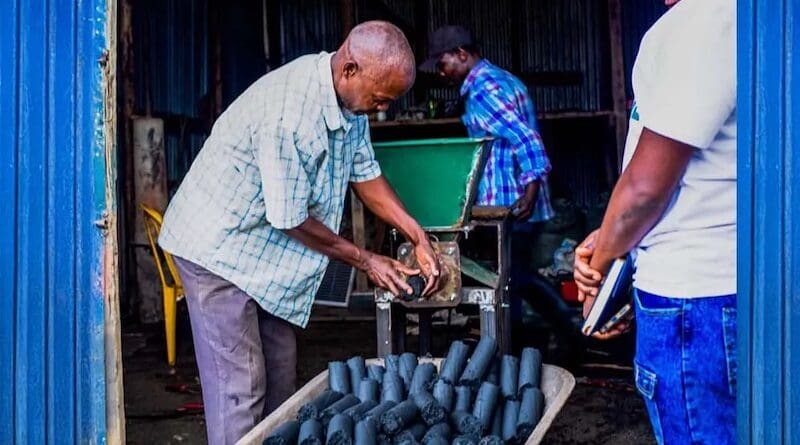On a small plot in rural Tanzania, Eden Kamugisha is redefining what it means to farm smart. His land may be modest in size, but his approach is expansive in impact — blending tree farming, animal husbandry, waste recycling, and agribusiness into a thriving, self-sustaining ecosystem.
Kamugisha’s philosophy is simple yet revolutionary: “Every plant and every animal on the farm must serve a purpose — and no byproduct goes to waste.”
With limited acreage, Kamugisha has focused on eucalyptus tree farming, nurturing thousands of seedlings with precision and care. His operation has caught the attention of local agronomists and fellow farmers alike, not only because of his healthy tree nursery but because of how he manages resources.
He has created a system where nothing is wasted:
• Animal waste is converted into organic manure for his trees and crops.
• Crop residues are turned into animal feed or compost.
• Water from animal cleaning areas is reused for irrigation.
This circular model dramatically reduces input costs while improving soil fertility, boosting productivity, and contributing to environmental conservation.
In addition to tree farming, Kamugisha raises goats, chickens, and cows, and grows horticultural crops, turning his land into a mixed-use farm that balances immediate food needs with long-term commercial prospects.
This diversity shields him from market shocks and seasonal crop failures — a lesson he actively shares with neighboring farmers, many of whom are now adopting similar strategies.
Kamugisha’s farm is more than a business. It’s a community learning center. He mentors local youth, hosts farming demonstration days, and encourages others to adopt climate-smart agriculture.
In regions where youth unemployment is high, Kamugisha’s model provides a pathway to dignified work and food security.
He also collaborates with local forestry and agriculture officers to ensure that his techniques align with national reforestation goals and soil conservation policies.
Kamugisha’s work reflects a growing movement across East Africa — smallholder farmers maximizing limited resources through innovation, sustainability, and knowledge-sharing.
As climate change, land degradation, and food insecurity threaten rural livelihoods, his example offers a blueprint for resilience.
Tanzania’s government has pledged to support smallholder farmers with access to climate-resilient inputs and agri-tech tools. Eden’s work shows how grassroots action can accelerate that transformation.
Eden Kamugisha’s farm is a living testament to what’s possible when passion meets purpose. It is proof that you don’t need massive land or capital to make an impact — just the willingness to think differently, act sustainably, and share knowledge.
In a world looking for answers to climate change, food insecurity, and youth unemployment, Kamugisha’s small plot farm may just hold some big solutions.



